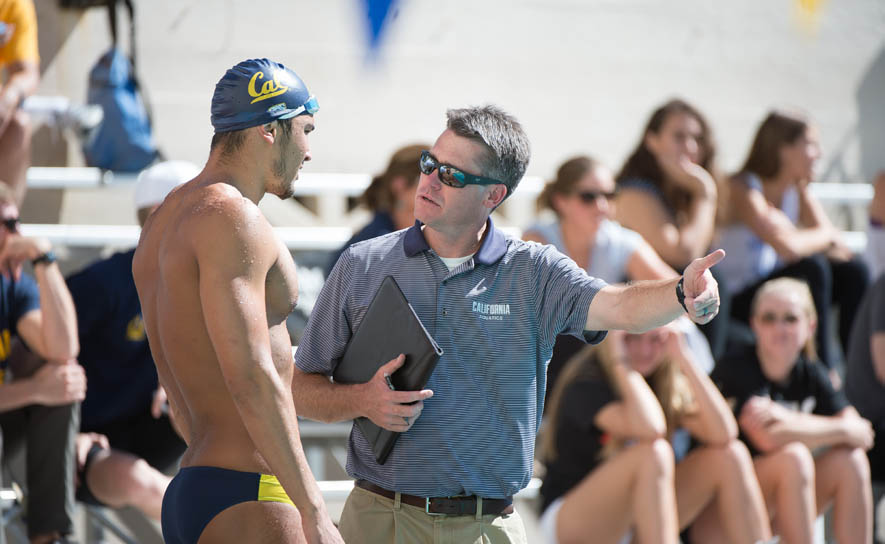USA Swimming News
Why Swim Coaches Matter

by Mike Gustafson//Contributor
When I was growing up, I was intimidated by teachers. I’m not sure why. I didn’t want to mess up or say something wrong around them, didn’t want to get in trouble, didn’t want to stand out from the crowd. My teachers were all wonderful people. My own weird growing-up personality contributed to my own anxiety around them.
However, around swim coaches, I was different. Maybe it was because I knew, deep down, that swimming was just a sport and something to do for fun. Maybe it was because I wasn’t behind a desk. Maybe it was that I wasn’t being graded.
Whatever the reason, I wasn’t intimidated around swim coaches, and ironically because of that, I learned more from them. I learned what hard work really meant. I learned the value of a commitment. I learned that “on time” means five minutes early. I learned that failure is only a “failure” when you let it be. Wave after wave of disappointment, I learned how to get back on those blocks, and try again — often, because a swim coach encouraged me to do so.
Swim coaches matter. Sports coaches matter. Coaches are not parents. They are instructors, mentors, teachers, and life guiders. And in the greater scope of growing up, coaches are like architects who can mold young humans into better humans.
Here are (just a few) reasons why swim coaches matter:
1. Coaches are life teachers.
Even the definition of coach includes the word “teach.” Swimming teaches so much about who we are as people. So do swim coaches. The best advice I’ve ever had in my life, outside of from my parents, came from my coaches, and often had nothing to do with swimming. Advice on how to grow up. Advice on how to be a man. Advice on how to be the best human I can be. All this came from swim coaches.
2. Coaches instruct kids the value of commitment.
When you’re late in school, you let yourself down. When you’re late for swim practice, you let your team down. Coaches hold swimmers accountable for time management — I often remember the line, “If you’re not five minutes early to practice, you’re late.” I still remember that line today (and often having to do some extra butterfly at the end of practice for each minute I was late). Coaches teach kids that when you commit to something, you have to follow up on that commitment every single day. True commitment is every day, and coaches often hold their swimmers accountable.
3. Coaches make swimmers try their best, and then try, try again.
Coaches understand their swimmers, and their swimmers' failures, in a different way than parents do. When you’re a parent, you see your child through your parental eyes. Coaches can see slightly different: They see the individual, the potential, the future, and often, the difficulties in getting there. They see all those daily failures, and how to overcome them. There’s often a cliche thrown around when people talk about great coaches, that great coaches often mold their swimmers into shape. But it’s true. Coaches are human architects. And like drawing up a blueprint, coaches aren’t afraid to draw over and over again until they get it right.
4. Coaches can change lives for the better.
One positive word or one encouraging sentence can change a life for the better. I still remember many of my interactions with coaches. Coaches don’t just train a swimmer how to kick freestyle. Coaches teach swimmers how to work at something with all their heart. Coaches teach swimmers how to follow dreams. How to commit to those dreams. Sports can change lives for the better, and often, it starts with the coach and that coach’s vision. These coaches are people who aren’t millionaires, aren’t doing it for the money or prestige, but instead, are doing it because they believe what they do is important — that they can change lives for the better.
So thank you, coaches, for all you do. The good ones know who you are, and you truly matter.
